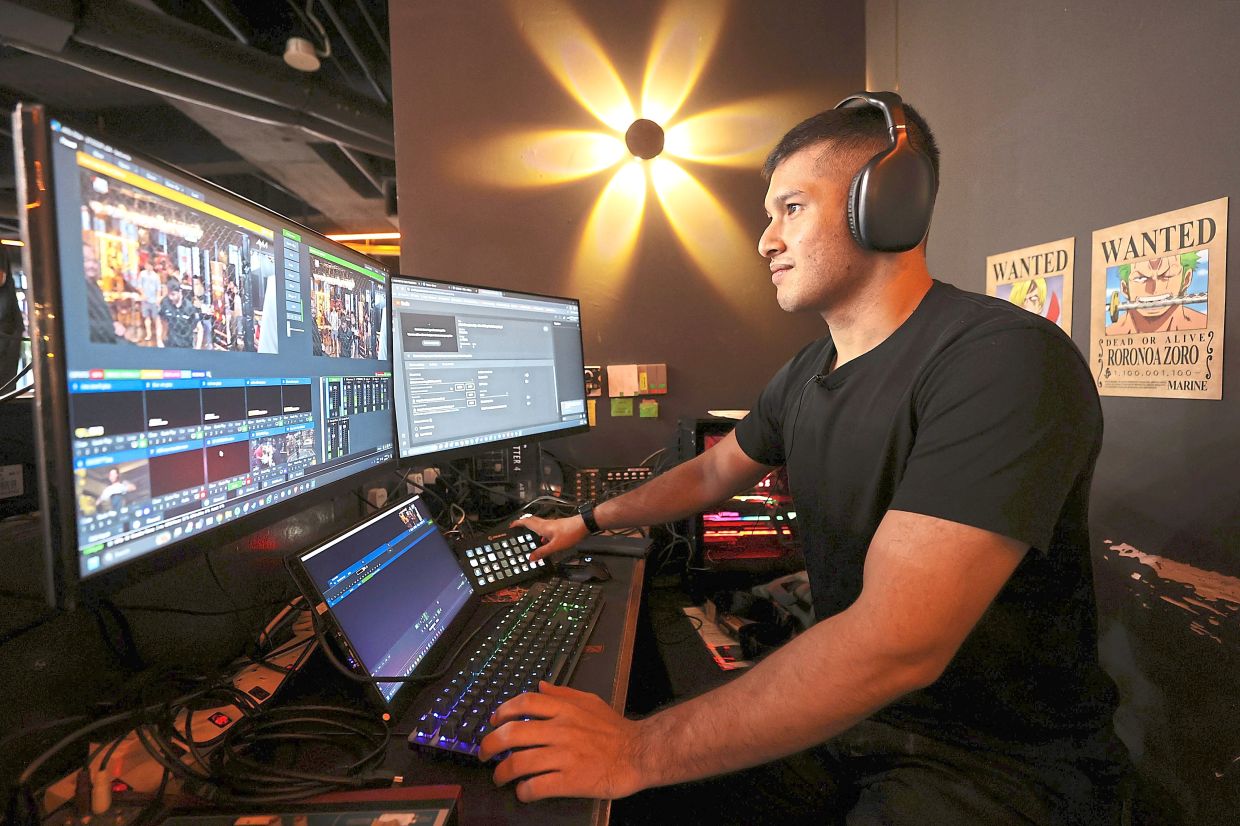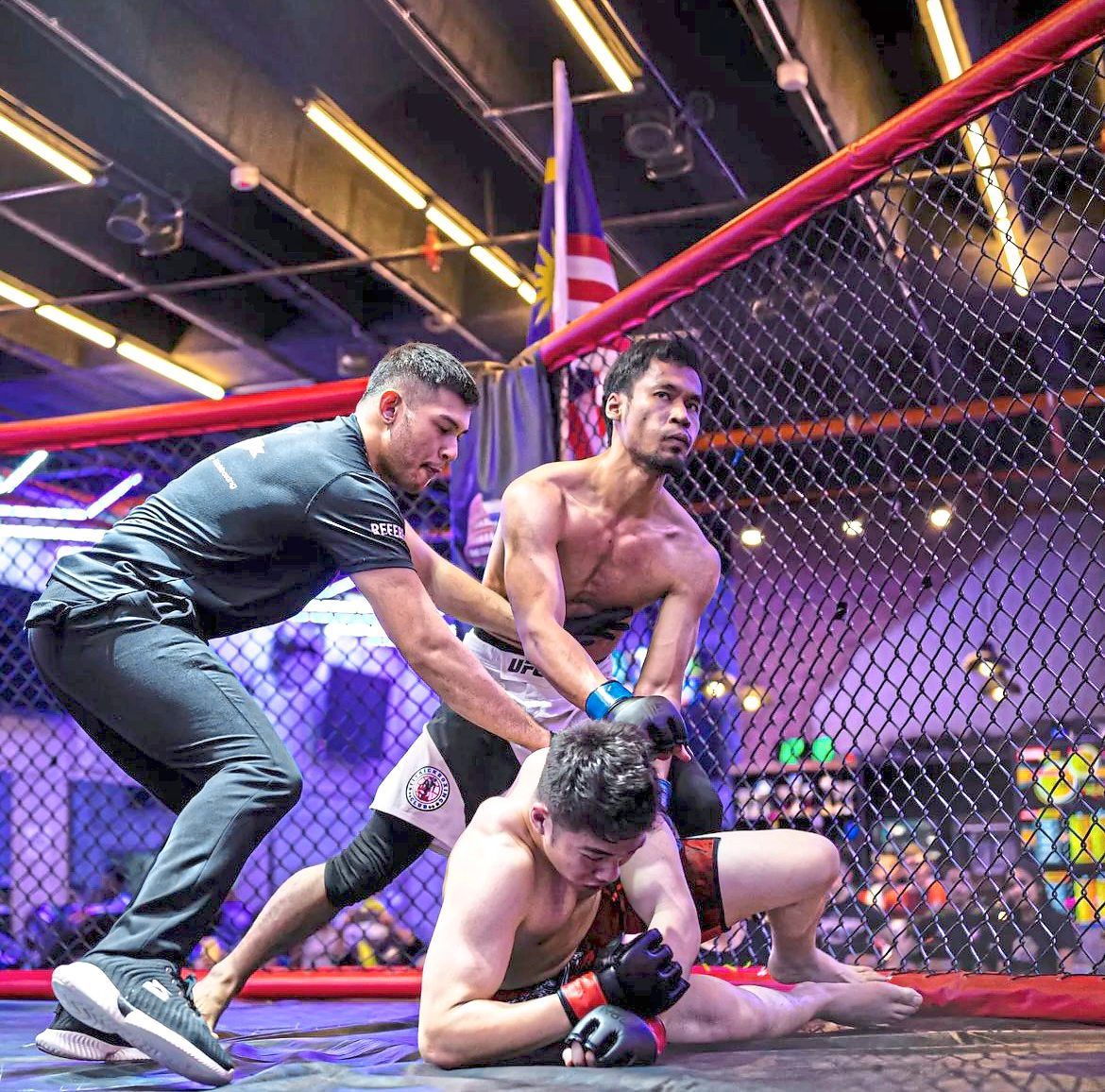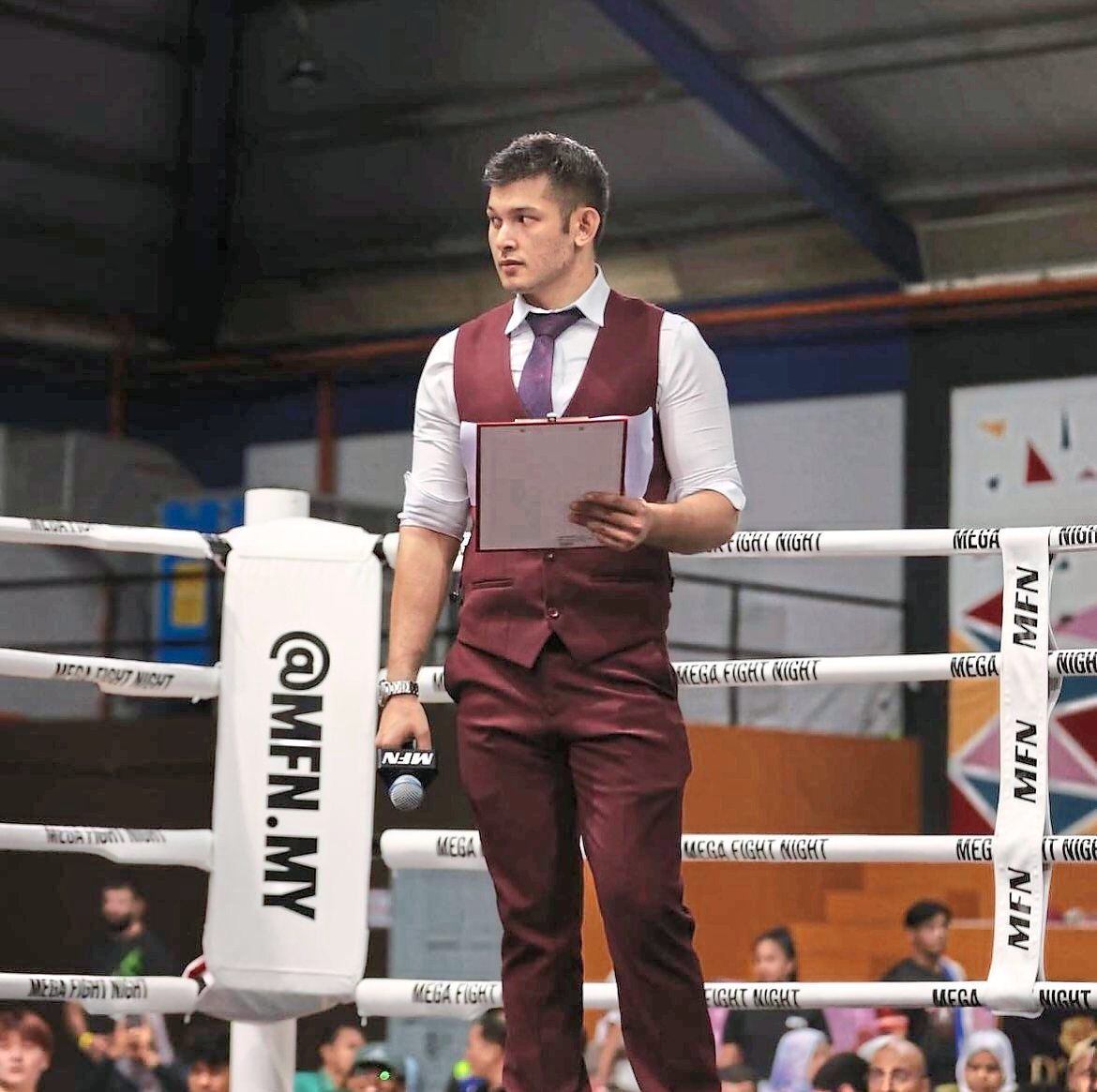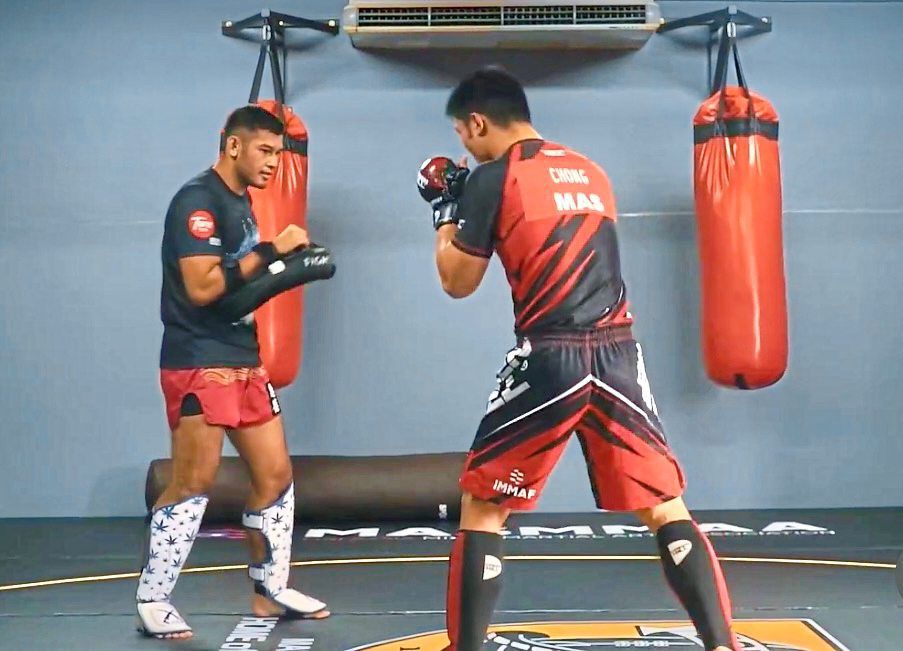Former MMA exponent Chee now organises and documents fight events through his company.
As A 10-year-old kid, Dan Chee often had his money and mobile phone stolen from him.
He would feel helpless as he was always picked on by the seniors at his school.
“I would go home, tell my mum about it and she would advise me to inform the discipline teacher.
“But when I did, it often made things worse. The bullies would retaliate after being reprimanded or punished, and take it out on me even more,” recalls Chee, from Subang Jaya, Selangor.
“That’s how I got into martial arts ... because I felt the need to learn how to defend myself,” reveals Chee, the founder of Southpaw, a Malaysian production house that focuses on fight documentaries and events.
He asked his parents if he could take up taekwondo, and even though they didn’t allow him to participate in competitions at that time, he graduated with a black belt at age 17.
According to Chee, now a confident strapping young man of 29, many martial artists have experienced some level of bullying.
“Bullying has always been a part of my life while I was growing up,” he says.
“It was worse because I’m a loner by nature."
“The bullying continued when I joined football teams. Unfortunately, it’s ‘frat boy culture’ that when a person isn’t part of a group, is a loner or doesn’t seem to belong, he tends to get picked on,” he adds.
But fortunately for Chee, his athletic prowess got him into Harimau Muda C, the former Malaysian National Under-19 Football Club for players under the age of 19, and the bullying lessened.
He adds that once he learnt martial arts and people knew that he was able to fight, they stopped bullying him.
“Bullies tend to pick on those they see as weaker. They don’t dare to pick on someone who is their peer or stronger than them, and they won’t pick on those who know how to fight,” he says.
Chee adds that martial arts does help survivors of bullying.
“I can’t emphasise this enough. I also became more buff after taking up weightlifting. That’s all the more reason to hit the gym and go to a martial arts dojo. When you see your physical self change, you’ll radiate confidence, and when you radiate confidence, the bullying stops because nobody dares to mess with you.”
Chee is quick to add that martial arts helps not just survivors of bullying, but also the bullies too.
“If you’re a bully or have bullied others before, and if you think you’re better than everybody else, then join a martial arts group and you’ll learn where you stand,” says the certified MMA coach, adding that it helps to change their perspective and to channel their anger/negative energy into something more productive such as sports, instead of bullying others.
Chee’s interest in mixed martial arts was piqued at the age of 18 when he was in university and saw a friend engage in “some weird moves” while sparring with someone, and subsequently got “taught at lesson”.
“When I saw them, I got curious and asked him, ‘What are you guys doing?’ ” he recounts.
“He told me they were doing jujitsu and invited me to visit their Jujitsu Club at the university and check it out.
“And boy, did I get taught a lesson!” he says with a laugh.
“As a taekwondo black belt, I thought I was ‘invincible’, but a white belt in jujitsu could put me on the floor and I was helpless.
“Despite all my knowledge as a black belt, there was an aspect of fighting that I had never even thought of, which was ‘fighting on the floor when you’re down’, and this inspired me to learn this martial art and incorporate it into what I already know,” he adds.
Chee opines that jujitsu is “the best martial art for self-defence”.
“Jujitsu teaches the technique to overthrow someone two or three times bigger/heavier than yourself. So, I would recommend this for women because most women face attackers who are bigger than them physically,” he advises.
“It also teaches you to fight when your back is against the wall or on the floor, and there is a way to protect yourself when you’re down,” he adds.
But Chee admits that his passion is essentially MMA.
“While kickboxing is one of my favourites, I love almost every kind of martial arts there is.
“I practise wrestling, judo, jujitsu, taekwondo, kickboxing, boxing, Muay Thai, and even Filipino martial arts like Arnis/Kali.
“I enjoy learning any form of martial arts that can improve my physical self-defence or myself as a person.”
Around the same time that he discovered jujitsu, Chee also came across the Ultimate Fighting Championship (UFC) which features MMA and he thoroughly enjoyed it.
“A combat sport that captures every single type of martial arts together is just beautiful to me.
“To some, it’s 'just pure violence', but to me, it’s like an 'advanced rapid chess game'.
“You see your opponent make one move, and you must have two or three moves up your sleeve.
“And, you always need to think five to ten steps ahead,” he enthuses.
Chee was a professional MMA fighter about nine to 10 years ago. He has done five professional fights in Malaysia, winning four of them.
One of them was the Malaysian Invasion for Hari Sukan Belia as an exhibition match in Putrajaya.
He still trains but admits he doesn’t fight professionally anymore due to injuries.
Chee reveals that he had two dislocated shoulders which he underwent surgery for and are currently “healed”.
“According to the doctor, technically, I can compete but I choose not to because the cost in terms of recovery time if injured wouldn’t be worth it,” he admits.
While he still trains – doing Muay Thai, kickboxing and weightlifting – he says it’s not as often as he’d like due to time constraints.
Now, Chee has shifted his focus to developing the combat sport scene in Malaysia.
“Combat sports as a career in Malaysia is still in its ‘developmental stages’ – especially kickboxing and MMA – although Muay Thai has done well and we can see this in terms of Johan Ghazali, a prime example that our local Muay Thai fighters can get professional contracts overseas,” he shares.
Chee – who has worked at international MMA federation events of over 600 athletes and 100 countries in Bahrain and Abu Dhabi – says his goal is to help enable combat sports athletes in Malaysia to reach the international arena.
One of the ways to do that is through creating and producing stories of these fighters and fight events, he says, adding that that was the reason his company was formed.
“Since I was already going to almost every fight event in Malaysia because it’s my passion, I decided to start this media hub for martial artists and fight events,” he shares.
Through Southpaw – which started off as a YouTube channel on the fight scene in Malaysia – he has expanded to organising fight events, including creating tournament formats, live-streaming and documenting them.
Chee also does documentaries on the fighters, which he says is his “passion project”.
“My focus is on MMA and kickboxing because these two sports in Malaysia have the room to grow in terms of organisation and professionalism.
“I believe our Malaysian combat sports athletes have the potential to grow and develop, and to be of a standard to be able to compete internationally,” he concludes.














